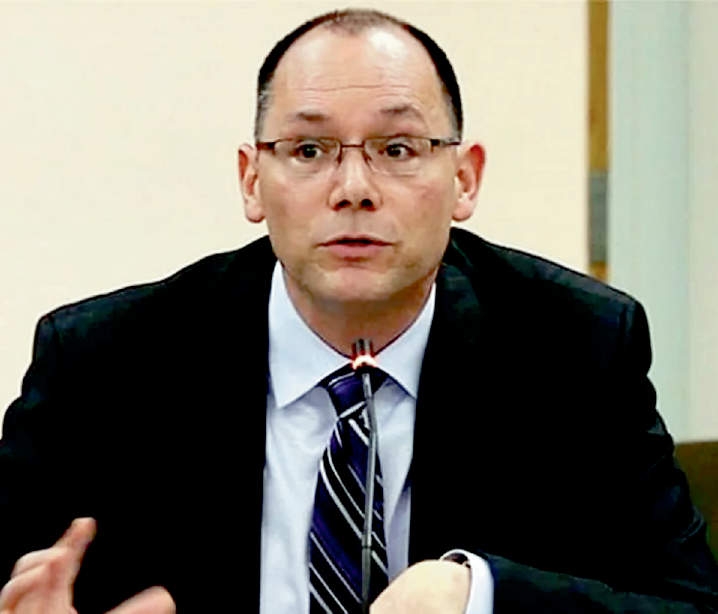
Diplomatic Correspondent :
The sanctions imposed against RAB and seven of its current and former officials for alleged human rights violations will remain until accountability and credible investigation are ensured and reforms made.
Besides, the international community will be watching the next national polls very keenly.
“There is no change in our policy. The sanction is action. It will remain until there is no accountability and no reform. We said this privately, we said this publicly,” US Ambassador Peter Haas said while addressing a “Meet the Ambassador” event in a city restaurant on Thursday.
Chairman of Centre for Governance Studies Dr Manjur A Chowdhury delivered the opening remarks while its Executive Director Zillur Rahman moderated it.
Leaders of political parties, academics, former diplomats and journalists were present on the occasion.
Peter Haas said the sanction is not intended to punish anyone but to change behaviour of the force and is looking for accountability for the past incidences so that they don’t happen again.
“We noticed remarkable decline in reported abuses being conducted by RAB since we imposed sanctions last year…it is a very good signal that number has decreased and some people say dramatically.”
Asked on enforced disappearances, he said they want an independent mechanism for credible investigation.
He also said that the US wants free, fair, inclusive and international standard election and the government, Election Commission, political parties, civil society, media – all have roles to play.
The international community will be watching the elections very keenly, he said, adding that the US does not favour any particular political party.
Noting of the recent political violence, he said fair election is not possible anywhere in the world where there is violence.
Asked about the alleged election rigging in 2014 and 2018, he said, “We tend to focus on today, what is going forward, less about what happened in the past.”
Peter Haas said Bangladesh has made notable progress in terms of workplace safety in the export-oriented industries since Rana Plaza accident in 2013 but the US still has concerns.
The US wants freedom of trade unions without facing intimidation, and it is holding continuous conversation with Bangladesh government.
He said governance, labour rights, investment environment are some of the major factors that can draw more US companies to invest in Bangladesh, which now exports more than $8 billion worth products to the US.
Asked if the US would include Bangladesh in the its recently launched Indo-Pacific Economic Framework (IPEF), Peter said it is a strategy that has a set of principles – free, open, resilient, prosperous and secure interconnected region. It is not a matter of becoming a member or not.
Asked if the US has any issue as Bangladesh is a signatory to the China-led Belt and Road Initiative, he said they don’t. “I don’t see any immediate contradiction there…it is entirely Bangladesh’s decision whether it wants to be part of BRI or any other organization.”
On the price hike of energy and food commodities, he said Russia’s invasion has caused the supply chain crisis that created a whole lot of problems. The US or EU sanctions were not on oil, gas, fertilizer or agricultural products, he said.
Russia needs to end the war for addressing other problems, Peter Haas said.
On Rohingya crisis, he said the US has already sanctioned the junta leaders but there is a need for the international community to take an integrated effort. The US is working with the UN Refugee Agency for settling some Rohingyas in the US from the region, including Bangladesh.
The US supports Bangladesh for Rohingya repatriation but it is unlikely that war may take place in Myanmar.
Haas said as Bangladesh moves to graduate out of LDC by 2026, its relationship with the US is also getting new dimension. The US, therefore, is seeking to improve the institutional development including judiciary, human rights, good governance and democracy, he added.
The US did not invite Bangladesh to its Democracy Summit last year, rather it slapped sanctions on RAB and its officials. Bangladesh has been trying in various ways to have the sanctions withdrawn.

